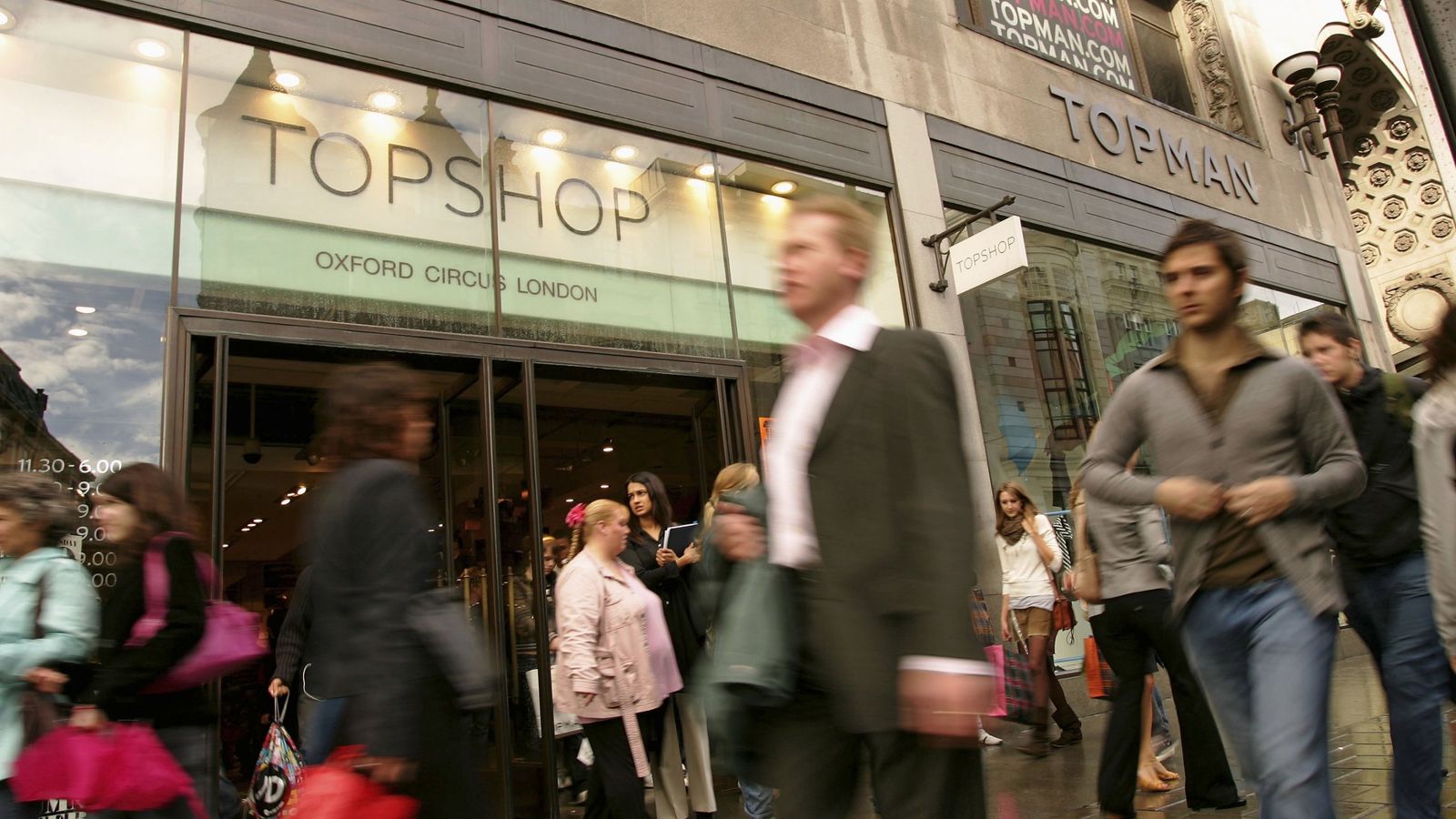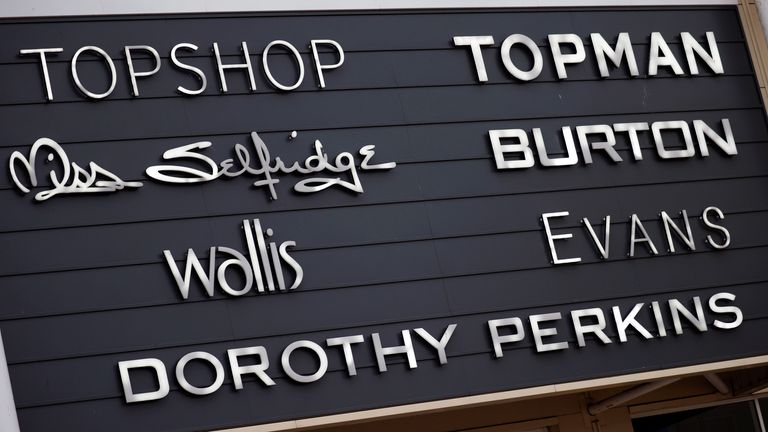The dismantling of Sir Philip Green’s high street empire is about to accelerate after the appointment of agents to oversee the sale of the tycoon’s former flagship Topshop store.
Sky News has learnt that administrators to Redcastle (214 Oxford Street) Limited, which owns the central London property next to Oxford Circus station have appointed Eastdil and Savills to advise on the site’s future.
A source close to the situation said on Friday that Eastdil would oversee the sale strategy for the building, while Savills would advise on future leasing options.
The giant store, against which the American investor Apollo Global Management lent Sir Philip’s Arcadia Group more than £300m just over a year ago, became an emblem of the tycoon’s commercial swagger.
For years, it reflected his status as the king of Britain’s high streets – culminating in the sale of a 25% stake in Topshop and Topman for £500m – but in recent years, the store has symbolised Sir Philip’s increasingly fragile grip on the company.
The bulk of the proceeds from the sale of Redcastle will be paid to Apollo, while Arcadia’s pension scheme is also likely to be in line for a payment, depending upon the sale price.
In November, Arcadia collapsed into administration, threatening more than 12,000 jobs, with administrators at Deloitte now engaged in a search for buyers of its assets.
Deloitte has already struck a deal to sell the womenswear brand Evans to City Chic, an Australian fashion retailer.
Topshop is by far the most valuable business within the group, and is expected to fetch more than £200m from an auction that could conclude as soon as this month.
It is far from clear that the brand will continue to occupy the Oxford Circus site once the group’s fate is finalised.
Sky News revealed recently that Next and Davidson Kempner Capital Management, a prominent American investment firm, were plotting a joint bid to gain control of Arcadia.
The process has also attracted interest from bidders including Mike Ashley’s Frasers Group, Authentic Brands – the American owner of department store Barneys – and Boohoo Group, the online fashion retailer.
The demise of Sir Philip’s empire follows the failure of retailers such as Cath Kidston, Oasis and Warehouse and Debenhams as the coronavirus crisis has exacerbated the financial pain being experienced across the British high street.
Debenhams’ future – which in turn will affect the willingness of bidders to buy some of Arcadia’s brands – also continues to hang in the balance amid last-ditch rescue talks with Mr Ashley.
Sir Philip has refused to speak publicly since Arcadia’s collapse, and is thought to be unlikely to return to the UK again following the termination of his tenure as a major player on the British high street.
His decision to sell the department store chain BHS in 2015 for £1 to Dominic Chappell, a former bankrupt who was recently jailed for tax evasion, set off a chain of events which cost Sir Philip his reputation and much of his fortune.
BHS collapsed just a year after that deal, sparking a bitter row about Sir Philip’s responsibilities towards its pensioners.
In early 2017, Sir Philip struck a deal with pensions watchdogs to pay more than £360m to the BHS scheme and which set the tone for negotiations over Arcadia’s retirement fund two years later.
Last year, the tycoon narrowly secured approval for a company voluntary arrangement at Arcadia, but was forced to pledge a package of assets worth more than £400m to the company’s pension scheme.
KPMG declined to comment on Friday.


